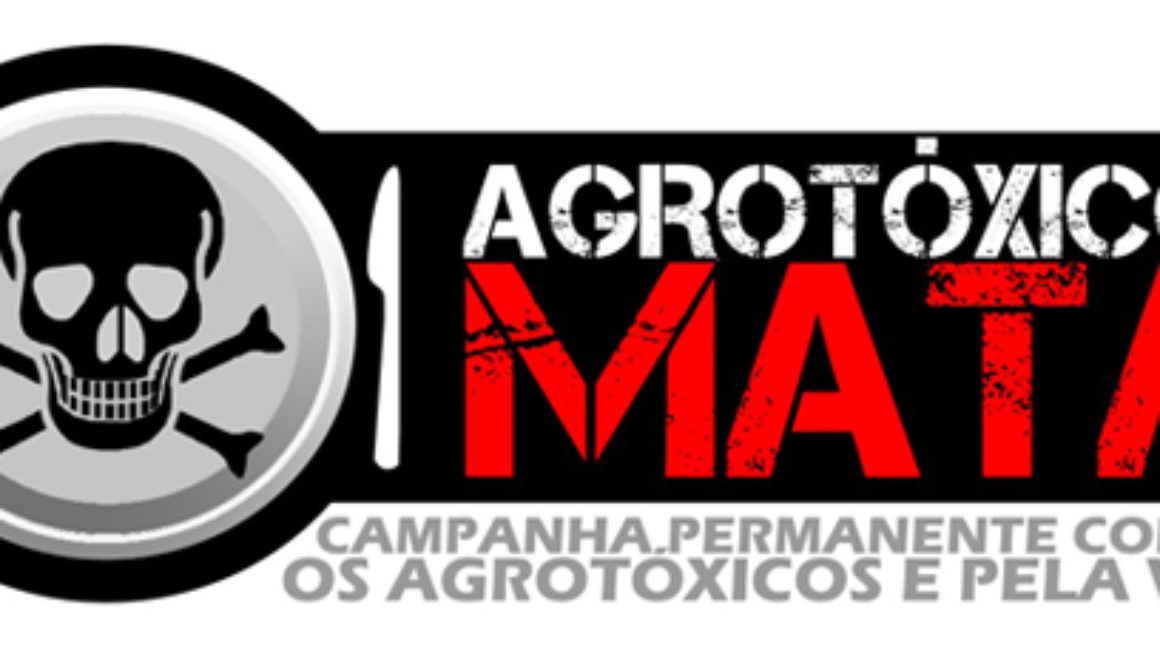
By Preston Peck, Policy Advocate, Toxic Free NC
Last month, I attended the first “Diálogos Internacionais sobre a Luta Contra os Agrotóxicos” (International Dialogue about the Fight Against Pesticides) in Guarerema, Brazil as one of four delegates from the United States. There were two other representatives from Farmworkers’ Association of Florida and another from CATA, based in New Jersey. I was ecstatic for the opportunity to hear from other advocates located around the globe about their own struggles against agrochemical companies, the poisonous products these companies promote, and methods of creating alternative agricultural systems. Simultaneously, I was humbled by the invitation to participate as I had never been to South America and knew very little about the state of the agricultural problems that the people faced. Toxic Free NC saw this as a means of carrying out part of our vision of “North Carolina as an integral member of a just global community”…so I went for it.
The conference lasted three days in the mountains of Guarerema (a small town about an hour east of São Paulo) on the Southeastern coast of Brazil. It was held at the Escola Nacional Florestan Fernandes (ENFF), which is a school associated with Brazil’s Landless Workers Movement, or Movimento dos Trabalhadores Rurais Sem Terra (MST), where activists are taught about social justice, how to organize for change, and the history of the movement. It was a beautiful place, secluded from the vibrant and busy atmosphere of São Paulo, where bananas and guava trees dominated the mountainsides.
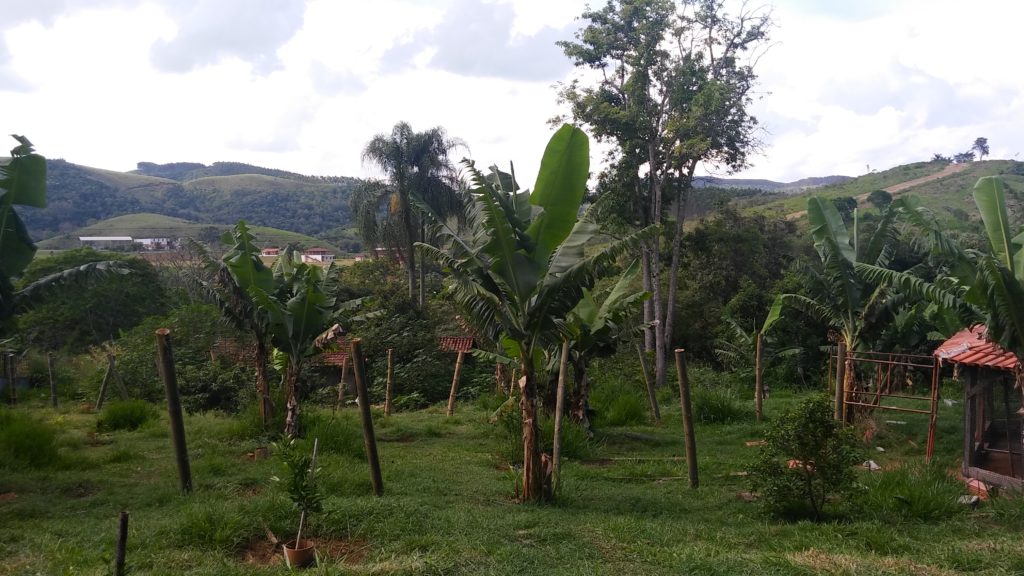
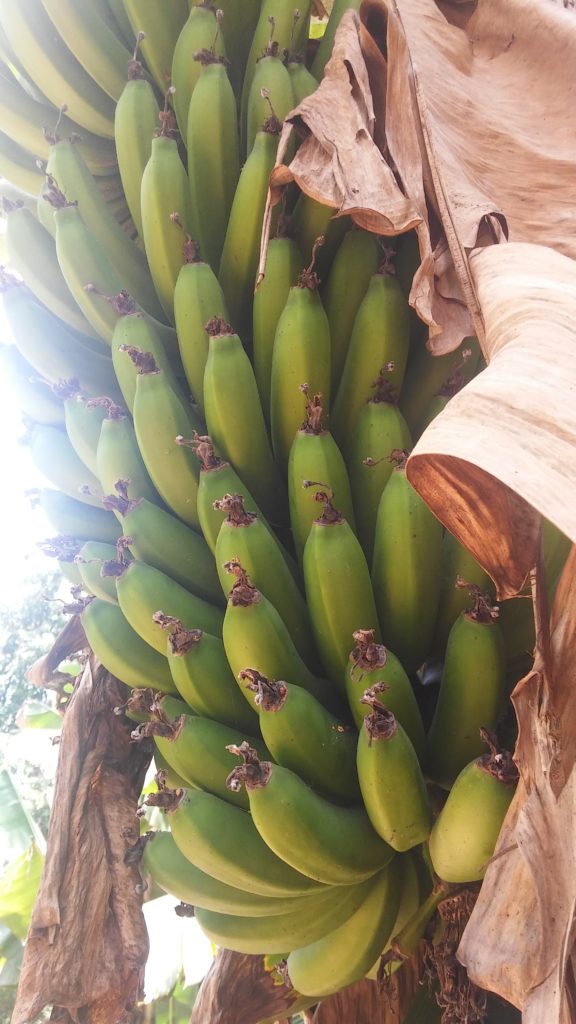
There were around 30 participants in the conference from the U.S., Brazil, Argentina, and Paraguay, who all brought a unique perspective to the dialogue as we discussed our individual struggles with pesticides and the multinational corporations that produce and promote them. There were a various experts and activists there that spoke on a variety of topics ranging from the science of the toxicity of common pesticides; the impact of neoliberalism and capitalism on agricultural chemical production, use, and trade; and the regulation and policy of pesticides. There were also film screenings of people that were directly impacted by pesticides through their work or just by their proximity to operations that use agrochemicals in food production.
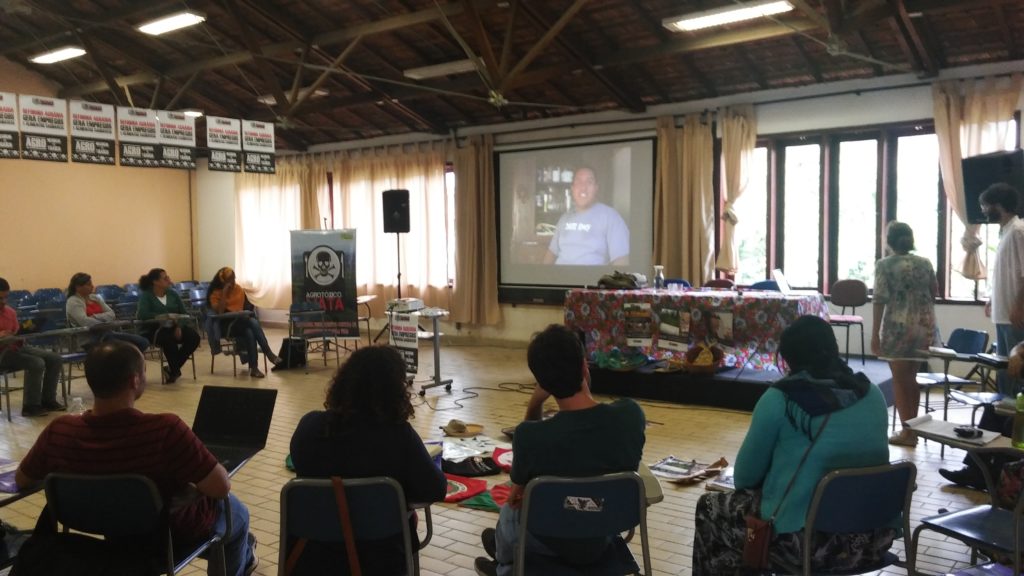
These panels and screenings provided an opportunity for rich conversation on the interconnectedness of our struggles, and a platform to share strategies to combat the harsh realities of chemical exposure. Participants recognized that to combat the “Big 6” pesticide producing companies (Bayer, DuPont, Dow, Syngenta, Monsanto, and BASF) that dominate our agricultural system, we must work together collectively, identifying that our struggles are the same in different political contexts. The impact of these chemicals are all too real for many people as many participants had either themselves lost, or knew someone that lost a loved one to pesticide exposure.
We are pushing back though. We are continuing to fight. We will win.
This was the attitude of the last day of the conference where we came together to talk about collective strategy, thank one another for their tireless efforts in the movement, and take a march in solidarity and remembrance to all of those who have fallen to pesticide exposure and a broken agricultural system. After the march, standing on the hillside, looking over the valleys, I felt a sense of rejuvenation of passion for this work. Seeing others from around the world instilled in me a stronger fight and a stronger will to change this broken system. For my family, for those that will come after me, and for a future without needless poisoning.
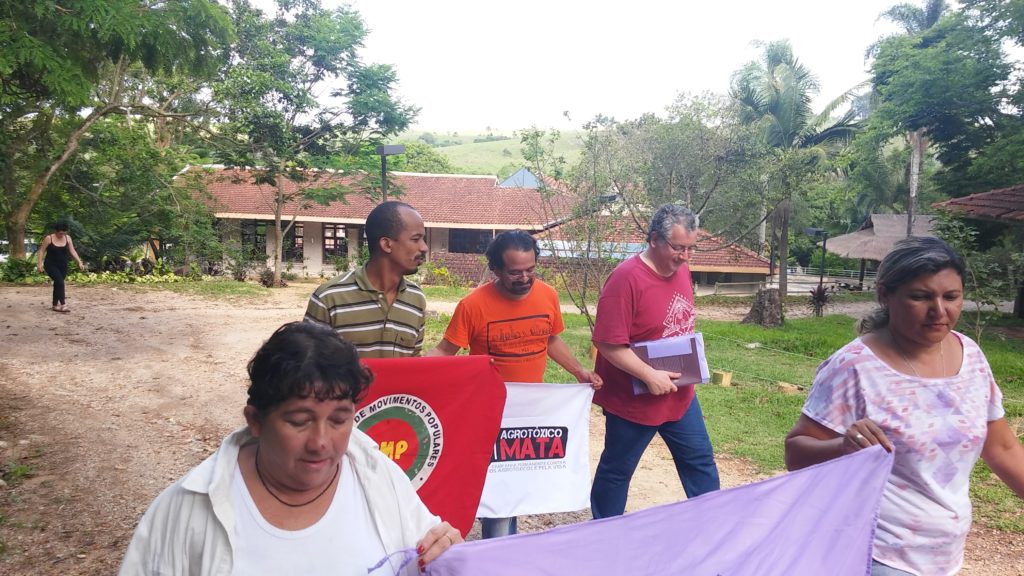
UPDATE:
The week after the conference, and after I left ENFF, there was a raid on the campus by the Brazilian Police where 10 police cars surrounded the school grounds, then jumped through the check-in station, live shots were fired, and two MST leaders were arrested. This raid was part of of Operation “Castra” that took place simultaneously in three Brazilian states (São Paulo, Mato Grosso do Sul, and Paraná) and aim was to take down leaders of the Landless Movement, which the current government defines as a criminal organization. In a press release, the MST denounced the “escalation of repression of the struggle for land, which is dominated by agribusiness interests associated with the violence of the state of emergency”. Click here to watch a brief movie of the raid on ENFF.
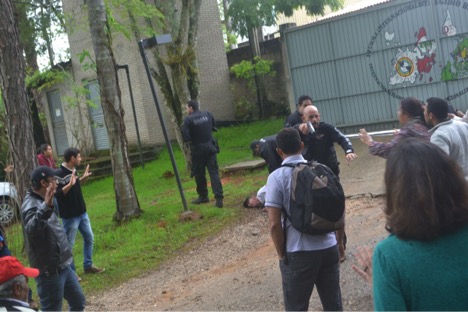
This is yet another unfortunate example of how immediate the threat is to those that attempt to stop the powerful chemical industry and other multinational corporations that influence legislators. Fortunately, no one was hurt during these raids and there has been a strong showing of support in the month after. I know many of these people that were at this school and they are no criminals. They are fighting for justice in an oppressive world. They are literally fighting for their lives. This social movement is repudiated by human rights organizations and under Brazilian Supreme Court judgments. I stand in solidarity with those affected by these unjust actions to oppress those without access to land, clean water, or clean food.
